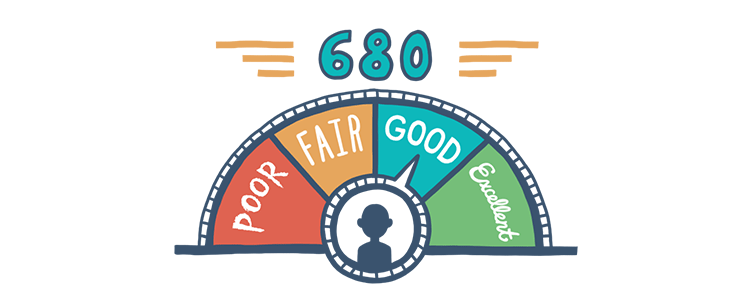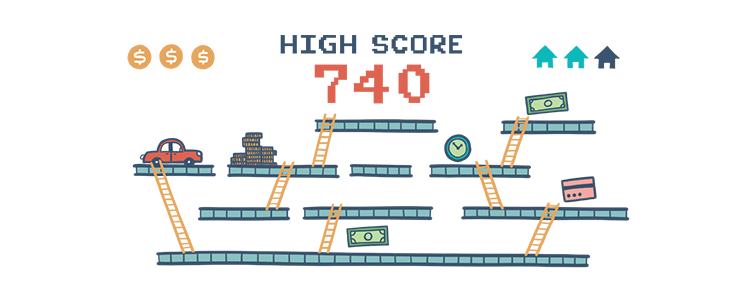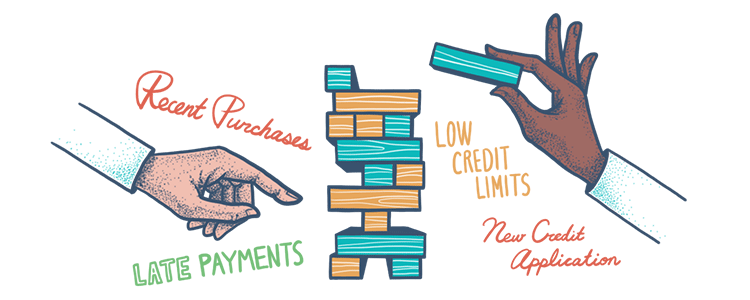Your Credit Score and FHA Loans
Your credit score plays a big role in determining how your mortgage experience turns out. A good one can help you secure a low interest rate mortgage with a smaller down payment, because it shows lenders that you’re creditworthy. On the other hand, a lower score can severely hurt your chances of getting approved for a loan.
What makes a good score? What score do you need for lenders to consider you a “good risk”? We’ve compiled some important information about credit scores and reporting that will help you understand exactly what that number represents in an effort to help you increase it to where your lender needs it to be.

Borrowers hear the term “credit report” a lot when they enter the homebuying market, but don’t always know what goes into it. Your credit report is compiled with different information about your spending and payment habits. Learn about all the factors that go into your credit score, what a FICO score really means, and what credit bureaus really do.

Even if you’ve made some mistakes in the past, it is possible to improve your credit score if you decide to put in the work. But before you can fix the problem, you need to know the point you’re starting at. Read about the steps you can take to increase your score so you can ensure a low-interest loan when the time comes for you to apply for a mortgage.

When shopping for a mortgage, many people will tell you what is and isn’t good for your credit score. They might give you advice about the dos and don’ts to help you keep your scores up. But it’s likely that you’ve come across some misinformation along the way. Read the facts about what affects your score, and check out some of the credit score myths as well!

While the Federal Housing Administration has set low credit score requirements for the loans they will insure, lenders providing the mortgages may not approve a loan for borrowers with lower scores. It is very common that lenders have their own, additional requirements for FHA loans that they grant, generally called “overlays.”

FHA Loan Articles
August 10, 2023FHA loans have specific rules and requirements for borrowers who have filed for bankruptcy. The guidelines can change over time, so it's essential to consult with a qualified lender or FHA-approved counselor for the most up-to-date information.
August 3, 2023FHA loans are primarily designed to help individuals and families purchase homes for use as their primary residences. Rules for these loans generally discourage their use for investment properties or rentals. However, there are exceptions that come with strict rules.
July 29, 2023One crucial aspect of FHA loans that borrowers need to understand thoroughly is debt ratios. In this article, we look at how they can impact your ability to secure financing for your dream home. Debt ratios help lenders understand a borrower's creditworthiness and any risks associated with the loan.
July 21, 2023Investing in a multi-unit property can be an excellent way to build wealth through rental income and property appreciation. FHA multi-unit property loans make this opportunity more accessible to a broader range of individuals. You must occupy a unit as your primary residence within 60 days of closing the loan.
July 15, 2023To qualify for an FHA loan, you must meet certain employment requirements. In this article, we'll dig into the FHA loan employment requirements so that you can understand what's needed to get approved for this type of mortgage.
July 7, 2023Manufactured homes, sometimes referred to as mobile or modular homes, are factory-built residences designed to meet or exceed national building codes set HUD. They offer cost savings and energy efficiency, making them an attractive housing option for many Americans.







